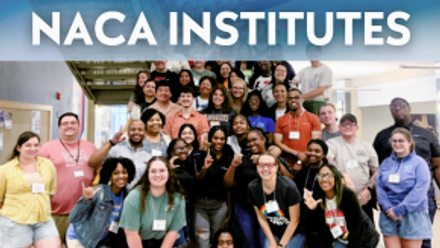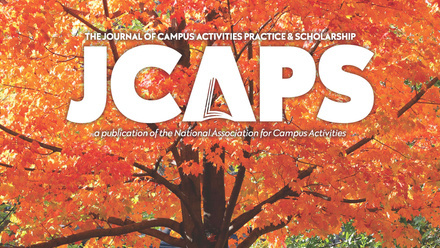Getting Unstuck #6 – Stuck in Traditions
Traditions give us a sense of who we are and from where we came. At times, our traditions provide a great source of comfort and peace. At other times conflicts over those traditions can tear apart a family or an organization. Ask yourself, what is the value of keeping this tradition? ~ Frank Zaccari, CEO/ Author/Speaker
One primary reason we get stuck in tradition is we focus the majority of our attention on our own. We do what we do is essential and needs to be preserved, but if we do not learn other traditions and rituals, we are limiting our life experiences. We see so much angst and division in the world because of the “My way is not only the right way, but it is also the only way” attitude. Well, here is a news flash, other cultures and traditions have been around for thousands of years before we were born.
There is so much to learn about people, culture, beliefs, food, and life. I traveled the world in my professional life and took the time to eat the local cuisine, participate in rituals, attend meetings and engage in traditions. This involvement made the trips more exciting, and I formed lifelong friends worldwide. So, keep your traditions. Honor them. Pass them to the next generation and make time to learn the traditions and culture of your neighbors, co-workers, and others in your community. You will find, as I have, that people are people, and we all want the same things for our family, children, friends, and community. You will read about three cultures later in this chapter.
What are the advantages of traditions?
Tradition contributes a sense of comfort and belonging. It brings families together and enables people to reconnect with friends. Tradition reinforces values such as freedom, faith, integrity, a good education, personal responsibility, a strong work ethic, and the importance of being selfless.
Frank Sonnenberg wrote an Online report, 7 Reasons Why Traditions Are So Important - Jun 30, 2015
When you hear the word holiday, what comes to mind? Shopping, parties, sales, and catalogs rank near the top of your list if you're like most people. The truth is, many holidays are becoming so commercialized that our proud traditions are in danger of becoming trivialized.
Many of us can’t even remember the true meaning of the holidays. Memorial Day has morphed from remembering our fallen soldiers to the unofficial beginning of summer. Labor Day’s role in recognizing the achievements of organized labor now just marks the end of summer and a return to school. Veterans Day is honored as a day off from work.
Stress of traditions
Of course, many traditions bring a great deal of stress and anxiety with them. The wedding must be perfect. The holiday table must be perfectly set; the meal must be done on time and be the best; conversations must be pleasant and cordial; everyone must love and respect each other, and many others you can name yourself. The reality is “perfect” does not exist.
We are imperfect people with imperfect traits living in an imperfect world.
There will be “triggers” that infiltrate the “perfect traditions. The key is to know or anticipate the triggers to lessen the impact.
For example, you know that Uncle Joe will get drunk and pass out, so let him sit in a chair after the meal where he can recline and be at peace away from the others. You know a toxic comment about politics, someone’s lifestyle choice, money, or taxes will happen. Someone will bring up a perceived “slight” from years ago. If you have children under six, at least two get hurt or into a fight.
If you have teenagers, one or more will smoke pot in the backyard. At least one Uncle will sprain an ankle, pull a muscle, or break a bone trying to relive his youth by participating in a touch football or basketball game with the kids. And let’s not forget the big one, someone will go to the emergency room by ambulance. I am not trying to be over dramatic here. I was a medic in the military and often worked in the emergency room during the holidays.
I saw it all, food and alcohol poisoning, stroke, heart attack, panic attack, sprains, and broken bones, concussions from falling off a skateboard, bicycle, ice skates (usually an out of shape adult), cuts, stitches, etc. bruises from fistfights between family members, to knife and gunshot wounds. There were also significant lacerations to someone thrown out a window during a Thanksgiving Day argument.
Heed the words of my wife, who often says, “Hope for the best, plan for the worst, and take whatever comes.” Since we know one and hopefully not all of what we listed above will occur, be prepared. Self-care and personal growth techniques are very effective, easy to use, and repeatable. As the event approaches, try EFT tapping or havening to bring yourself to a place of peace and calm. Do these for multiple days before the event. I suggest you make it part of your daily routine. Anyway, I digress. These self-care actions will bring you the sense of calm to take the “edge” off when the less than desirable traditions occur. Defusing a highly volatile situation can happen if just one person stays relaxed and demonstrates a sense of calm.
To Get Unstuck, Take The Time to Learn.
There appears to be a wave of nationalism for close to a decade or so. I define nationalism as a country, organization, or community defining what and who they believe are right and shunning others. We have seen more acts of violence in this US verse THEM model up to and including genocide. We see more and more images of people attempting to leave toxic or oppressive environments and trying to immigrate to places when they believe they have a chance at a better life. It is not new.
It has been going on since the beginning of time. There has always been some degree of backlash against the latest set of immigrants. Still, now instead of embracing the diversity of other cultures and traditions, we see more anger and statements like “Go back to where you came from.”
Other Traditions
Most of us are aware of our culture and heritage. Growing up in the 1950s and 1960s, I knew the Italian/Sicilian and Catholic traditions and rituals. As I moved away and lived in various places worldwide, I was always intrigued to learn about these places' cultures, customs, and rituals. While our language, skin pigmentation, food, and celebrations may be different, we have more in common than we may realize. The many places I visited celebrated birthdays, births, marriages, death, religious and national holidays with family, love, music, and food. It is universal.
We all want to provide for and support our family, work at a job where we appreciate and respect, and raise our children to be positive contributing members of society. If we take the time to learn and engage with people from other cultures and traditions, we will discover there is far more that unites us than divides us.
The more we know about each other, the more we appreciate the common threads that unite us
Summary of Other Traditions
Despite the differences in where we live, what we eat, the language we speak, the God or spirit we worship, our skin pigmentation, etc., we all share the same innate need to be seen, heard, and belong. It is why I genuinely believe we are all connected, and together we are better than we are alone. We now live in a global business world.
No one country or culture can succeed entirely on its own. The business that remains stuck and avoids accepting all people will not survive. Those who pull themselves out of the closed mind quagmire and understand that diversity of ideas, thoughts, and people is a competitive advantage will thrive.
Stepping Stones to Avoid Getting Stuck in Traditions
- What is your favorite family or ethnic tradition? Why?
- What does this tradition celebrate?
- What traditions have you participated in or taken the time to learn outside of your own family or ethnic group? What similarities did you discover?
- If you have taken the time to learn the traditions and celebrations of other groups, how did it change your attitude about different ideas or cultures?




